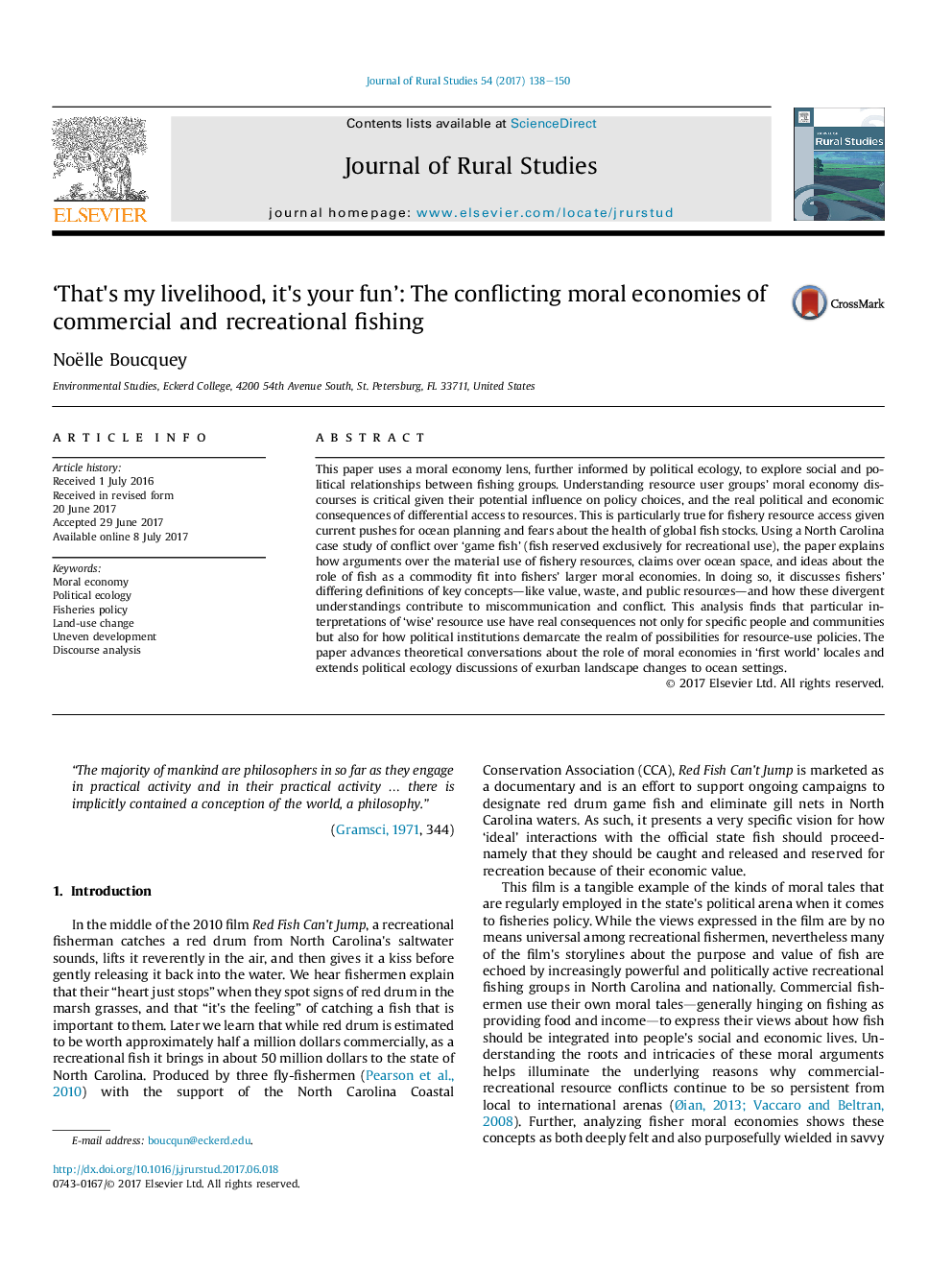| Article ID | Journal | Published Year | Pages | File Type |
|---|---|---|---|---|
| 6460031 | Journal of Rural Studies | 2017 | 13 Pages |
â¢Examines moral economies of commercial and recreational fishers.â¢Moral economy discourses stem from material interactions with fishery resources and historical development patterns.â¢Fishers have divergent definitions of value, waste, and public resources.â¢Fisher moral economies have the potential to be encoded in fisheries policies, affecting material access to resources.
This paper uses a moral economy lens, further informed by political ecology, to explore social and political relationships between fishing groups. Understanding resource user groups' moral economy discourses is critical given their potential influence on policy choices, and the real political and economic consequences of differential access to resources. This is particularly true for fishery resource access given current pushes for ocean planning and fears about the health of global fish stocks. Using a North Carolina case study of conflict over 'game fish' (fish reserved exclusively for recreational use), the paper explains how arguments over the material use of fishery resources, claims over ocean space, and ideas about the role of fish as a commodity fit into fishers' larger moral economies. In doing so, it discusses fishers' differing definitions of key concepts-like value, waste, and public resources-and how these divergent understandings contribute to miscommunication and conflict. This analysis finds that particular interpretations of 'wise' resource use have real consequences not only for specific people and communities but also for how political institutions demarcate the realm of possibilities for resource-use policies. The paper advances theoretical conversations about the role of moral economies in 'first world' locales and extends political ecology discussions of exurban landscape changes to ocean settings.
